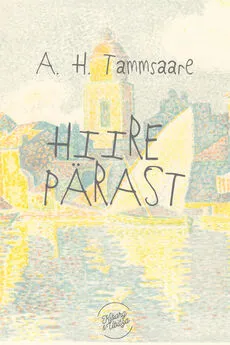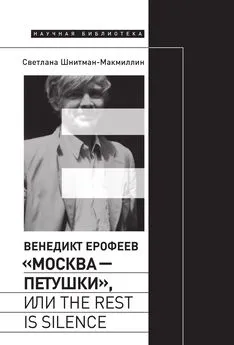W. Ainsworth - Rookwood
- Название:Rookwood
- Автор:
- Жанр:
- Издательство:неизвестно
- Год:неизвестен
- ISBN:нет данных
- Рейтинг:
- Избранное:Добавить в избранное
-
Отзывы:
-
Ваша оценка:
W. Ainsworth - Rookwood краткое содержание
Rookwood - читать онлайн бесплатно полную версию (весь текст целиком)
Интервал:
Закладка:
A very different character, in many respects, from his father and brother, holding in supreme dislike Courts and courtiers, party warfare, political intrigue, and all the subtleties of Jesuitical diplomacy; neither having any inordinate relish for camps or campaigns; Sir Piers Rookwood yet displayed in early life one family propensity—viz., unremitting devotion to the sex. Among his other mistresses was the unfortunate Susan Bradley, to whom by some he was supposed to have been clandestinely united. In early youth, as has been stated, Sir Piers professed the faith of Rome, but shortly after the death of his beautiful mistress (or wife, as it might be), having quarrelled with his father's confessor, Checkley, he publicly abjured his heresies. Sir Piers subsequently allied himself to Maud, only daughter of Sir Thomas D'Aubeny, the last of a line as proud and intolerant as his own. The tables were then turned. Lady Rookwood usurped sovereign sway over her lord, and Sir Piers, a cipher in his own house, scarce master of himself, much less of his dame, endured an existence so miserable, that he was often heard to regret in his cups, that he had not inherited, with the estate of his forefathers, the family secret of shaking off the matrimonal yoke, when found to press too hardly.
At the onset, Sir Piers struggled to burst his bondage. But in vain—he was fast fettered; and only bruised himself, like the caged lark, against the bars of his prison-house. Abandoning all further effort at emancipation, he gave himself up to the usual resource of a weak mind, debauchery; and drank so deeply to drown his cares, that, in the end, his hale constitution yielded to his excesses. It was even said, that remorse at his abandonment of the faith of his fathers had some share in his misery; and that his old spiritual, and if report spoke truly, sinful adviser, Father Checkley, had visited him secretly at the hall. Sir Piers was observed to shudder whenever the priest's name was mentioned.
Sir Piers Rookwood was a good-humoured man in the main, had little of the old family leaven about him, and was esteemed by his associates. Of late, however, his temper became soured, and his friends deserted him; for, between his domestic annoyances, remorseful feelings, and the inroads already made upon his constitution by constant inebriety, he grew so desperate and insane in his revels, and committed such fearful extravagances, that even his boon companions shrank from his orgies. Fearful were the scenes between him and Lady Rookwood upon these occasions—appalling to the witnesses, dreadful to themselves. And it was, perhaps, their frequent recurrence, that more than anything else, banished all decent society from the hall.
At the time of Sir Piers's decease, which brings us down to the date of our story, his son and successor, Ranulph, was absent on his travels. Shortly after the completion of his academical education, he had departed to make the tour of the Continent, and had been absent rather better than a year. He had quitted his father in displeasure, and was destined never again to see his face while living. The last intelligence received of young Rookwood was from Bordeaux, whence it was thought he had departed for the Pyrenees. A special messenger had been despatched in search of him, with tidings of the melancholy event. But, as it was deemed improbable by Lady Rookwood that her son could return within any reasonable space, she gave directions for the accomplishment of the funeral rites of her husband on the sixth night after his decease (it being the custom of the Rookwoods ever to inter their dead at midnight), entrusting their solemnisation entirely to the care of one of Sir Piers's hangers-on (Dr. Titus Tyrconnel), for which she was greatly scandalised in the neighbourhood.
Ranulph Rookwood was a youth of goodly promise. The stock from which he sprang would on neither side warrant such conclusion. But it sometimes happens that from the darkest elements are compounded the brightest and subtlest substances; and so it occurred in this instance. Fair, frank, and free—generous, open, unsuspicious—he seemed the very opposite of all his race—their antagonising principle. Capriciously indulgent, his father had allowed him ample means, neither curbing nor restraining his expenditure; acceding at one moment to every inclination; and the next irresolutely opposing it. It was impossible, therefore, for him, in such a state of things, to act decidedly, without incurring his father's displeasure; and the only measure he resolved upon, which was to absent himself for a time, was conjectured to have brought about the result he had endeavoured to avoid. Other reasons, however, there were, which secretly influenced him, which it will be our business in due time to detail.
| Contents |
CHAPTER VII
THE RETURN
THE time of the sad ceremonial drew nigh. The hurrying of the domestics to and fro; the multifarious arrangements for the night; the distribution of the melancholy trappings, and the discussion of the "funeral baked meats," furnished abundant occupation within doors. Without, there was a constant stream of the tenantry, thronging down the avenue, mixed with an occasional horseman, once or twice intercepted by a large lumbering carriage, bringing friends of the deceased, some really anxious to pay the last tribute of regard, but the majority attracted by the anticipated spectacle of a funeral by torchlight. There were others, indeed, to whom it was not matter of choice; who were compelled, by a vassal tenure of their lands, held of the house of Rookwood, to lend a shoulder to the coffin, and a hand to the torch, on the burial of its lord. Of these there was a plentiful muster collected in the hall; they were to be marshalled by Peter Bradley, who was deemed to be well skilled in the proceedings, having been present at two solemnities of the kind. That mysterious personage, however, had not made his appearance—to the great dismay of the assemblage. Scouts were sent in search of him, but they returned with the intelligence that the door of his habitation was fastened, and its inmate apparently absent. No other tidings of the truant sexton could be obtained.
It was a sultry August evening. No breeze was stirring in the garden; no cool dews refreshed the parched and heated earth; yet from the languishing flowers rich sweets exhaled. The plash of a fountain fell pleasantly upon the ear, conveying in its sound a sense of freshness to the fervid air; while deep and drowsy murmurs hummed heavily beneath the trees, making the twilight slumberously musical. The westering sun, which had filled the atmosphere with flame throughout the day, was now wildly setting; and, as he sank behind the hall, its varied and picturesque tracery became each instant more darkly and distinctly defined against the crimson sky.
At this juncture a little gate, communicating with the chase, was thrown open, and a young man entered the garden, passing through the shrubbery, and hurrying rapidly forward till he arrived at a vista opening upon the house. The spot at which the stranger halted was marked by a little basin, scantily supplied with water, streaming from a lion's kingly jaws. His dress was travel-soiled, and dusty; and his whole appearance betokened great exhaustion, from heat and fatigue. Seating himself upon an adjoining bench, he threw off his riding cap, and unclasped his collar, displaying a finely-turned head and neck; and a countenance which, besides its beauty, had that rare nobility of feature which seldom falls to the lot of the aristocrat, but is never seen in one of an inferior order. A restless disquietude of manner showed that he was suffering from over-excitement of the mind, as well as from bodily exertion. His look was wild and hurried; his black ringlets were dashed heedlessly over a pallid, lofty brow, upon which care was prematurely written, while his large melancholy eyes were bent, with a look almost of agony, upon the house before him.
After a short pause, and as if struggling against violent emotions, and some overwhelming remembrance, the youth arose, and plunged his hand into the basin, applying the moist element to his burning brow. Apparently becoming more calm, he bent his steps towards the hall, when two figures suddenly issuing from an adjoining copse, arrested his progress; neither saw him. Muttering a hurried farewell, one of the figures disappeared within the shrubbery, and the other, confronting the stranger, displayed the harsh features and gaunt form of Peter Bradley. Had Peter encountered the dead Sir Piers in corporeal form, he could not have manifested more surprise than he exhibited, for an instant or two, as he shrunk back from the stranger's path.
| Contents |
CHAPTER VIII
AN IRISH ADVENTURER
AN hour or two prior to the incident just narrated, in a small cosy apartment of the hall, nominally devoted to justiciary business by its late owner, but, in reality, used as a sanctum, snuggery, or smoking-room, a singular trio were assembled, fraught with the ulterior purpose of attending the obsequies of their deceased patron and friend, though immediately occupied in the discussion of a magnum of excellent claret, the bouquet of which perfumed the air, like the fragrance of a bed of violets.
This little room had been poor Sir Piers's favourite retreat. It was, in fact, the only room in the house that he could call his own; and thither would he often, with his pipe and punch, beguile the flagging hours, secure from interruption. A snug, old-fashioned apartment it was; wainscoted with rich black oak; with a fine old cabinet of the same material, and a line or two of crazy, worm-eaten book-shelves, laden with sundry dusty, unconsulted law tomes, and a slight sprinkling of the elder divines, equally neglected. The only book, indeed, Sir Piers ever read, was the "Anatomie of Melancholy," and he merely studied Burton because the quaint, racy style of the learned old hypochondriac suited his humour at seasons, and gave a zest to his sorrows, such as the olives lent to his wine.
Four portraits adorned the walls; those of Sir Reginald Rookwood and his wives. The ladies were attired in the flowing drapery of Charles the Second's day, the snow of their radiant bosoms being somewhat sullied by over exposure, and the vermeil tinting of their cheeks darkened by the fumes of tobacco. There was a shepherdess, with her taper crook, whose large, languishing eyes, ripe pouting lips, ready to melt into kisses, and air of voluptuous abandonment, scarcely suited the innocent simplicity of her costume. She was portrayed tending a flock of downy sheep, with azure ribands round their necks, accompanied by one of those invaluable little dogs, whose length of ear, and silkiness of skin, evinced him perfect in his breeding, but whose large-eyed indifference to his charge, proved him to be as much out of character with his situation, as the refined and luxuriant charms of his mistress were out of keeping with her artless attire. This was Sir Piers's mother, the third wife, a beautiful woman, answering to the notion of one who had been somewhat of a flirt in her day. Next to her was a magnificent dame, with the throat and arm of a Juno, and a superb bust (the bust was, then, what the bustle is now—a paramount attraction—whether the modification be an improvement, we leave to the consideration of the lovers of the beautiful)—this was the dowager. Lastly, there was the lovely, and ill-fated Eleanor. Every gentle grace belonging to this unfortunate lady had been stamped in undying beauty on the canvas by the hand of Lely, breathing a spell on the picture, almost as powerful as that which had dwelt around the exquisite original. Over the high carved mantelpiece was suspended a portrait of Sir Reginald. It had been painted in early youth; the features were beautiful, disdainful—with a fierceness breaking through the courtly air. The eyes were very fine, black as midnight, and piercing as those of Cæsar Borgia, in Raphael's wonderful picture of the fratricide duke, in the Borghese Palace at Rome. They seemed to fascinate the gazer—to rivet his glances—to follow him whithersoever he went—and to search into his soul, as did the dark orbs of Sir Reginald in his lifetime. It was the work likewise of Lely, and had all the fidelity and graceful refinement of that great master; nor was the haughty countenance of Sir Reginald unworthy the patrician painter.
Читать дальшеИнтервал:
Закладка:




![Rakot - Апостол Новой Веры. Том 1 [СИ]](/books/1061842/rakot-apostol-novoj-very-tom-1-si.webp)
![Rakot - Укуренный мир. Том 3 [СИ]](/books/1073038/rakot-ukurennyj-mir-tom-3-si.webp)




